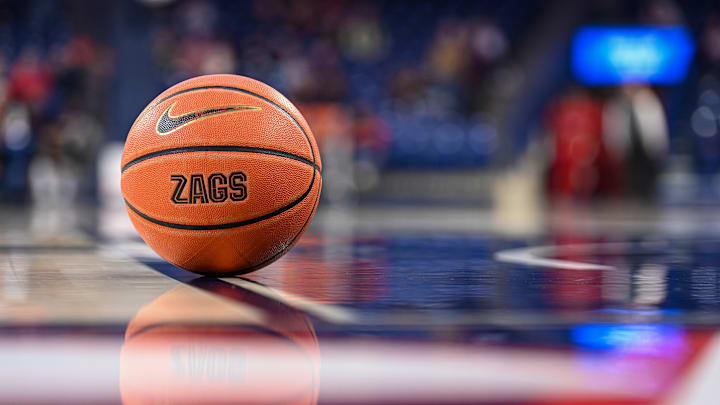Should the Pac-12 add Gonzaga? ‘That’s the school this group should be trying to add’

The Pac-12 is back — well, halfway at least.
The conference expanded to add Boise State, Colorado State, San Diego State and Fresno State to mix with Washington State and Oregon State starting in the 2026-27 NCAA calendar year. The four Mountain West schools have all applied and been accepted into the league, which lost 10 members to other power conferences around a year ago.
The move, while expensive, is the first major step in rebuilding the 108-year-old conference. The Pac-12 is expected to remain active in finding more schools to add in order to reach the minimum requirement of eight members to qualify as an FBS conference — and potentially earn College Football Playoff distribution royalties along with more voting privileges within NCAA governance as a result.
The reported schools that the Pac-12 could potentially target range from California to Louisiana. Stanford and Cal are the two obvious ones, though their contractual obligations to the ACC make such a move a complicated one. It’s still worth noting though since the two schools will receive just a fraction of the league's media rights distributions over the next seven years; perhaps buyer’s remorse settles in sooner rather than later.
Other candidates for the new-look Pac-12 range from UTSA and Memphis in the American, to UNLV and Air Force in the Mountain West. Schools from Conference USA and the Western Athletic Conference are also in contention. The ripple-down effect could see a few FCS schools make the move up to the FBS level to fill in the gaps.
In other words, football schools will be — and always have been — the first line when it comes to conference realignment. College basketball is the next train of thought that comes to mind when negotiating the mega TV contracts, which is why the Pac-12 is reportedly looking east for a football school before it considers reaching out to one of the best college basketball programs in the country — even if its located right it the conference’s backyard.
The lack of football puts Gonzaga in a precarious situation as the next wave of conference realignment moves to the West Coast. The school has been a committed member of the West Coast Conference as the league added Grand Canyon and Seattle U to the mix starting in the 2025-26 NCAA calendar year. Gonzaga athletic director Chris Standiford described the expansion as “very stabilizing” for the WCC amid the chaos going on throughout the landscape.
Still, if the Pac-12 is to be recognized as “a leading brand in intercollegiate athletics,” then there needs to be a discussion at some point about bringing in one of the most consistent men’s basketball programs in the country.
“There’s no one school that would bring more headlines and be a splashier get and a better get for the viability of this Pac-12, than just go get Gonzaga,” CBS Sports’ Matt Norlander said. “Gonzaga is the school because of the championship-level pedigree; this operates as a top 10 program in college basketball of course. That’s the school this group should be trying to add.”
The idea of such a move presents some uncertainties Gonzaga would have to consider. The school wouldn’t likely receive a full share of the league’s revenue; it’s unclear if it would pay an exit fee to leave the WCC. None of the details of the Pac-12’s new media deals are set in stone either.
The WCC has provided the Bulldogs a stable home throughout the program’s ascension into one of the marquee brands in the sport. Gonzaga hasn’t missed the NCAA Tournament in the Mark Few-era and has appeared in the last nine Sweet 16s. During that span, the Zags have appeared in two Final Fours and produced nine active NBA players.
History has proven the WCC hasn’t hindered Few and company from pulling off deep postseason runs, and the eventual newcomers indicate a more competitive league is on the horizon. The Antelopes have made back-to-back NCAA Tournament appearances under Bryce Drew; the Red Hawks have won at least 20 games in three straight seasons.
Off the court, however, the power pendulum in college athletics sways in favor of the power conferences. Pending approval of the House v. NCAA settlement, schools will be permitted to share nearly $20 million annually in revenue with their student-athletes starting in the 2025-26 season. While the bigger schools are expected to find that amount feasible, the same can’t be said of a majority of the smaller leagues and schools.
Also, schools would face distribution cuts from the NCAA as part of the $2.8 billion settlement, which will likely put a lot of non-FBS programs in a hard spot financially over the next decade.
“For Gonzaga, it has to choose between: do we stay in the WCC, or do we continue to try and be ambitious about repositioning ourselves for the post-Mark Few era to best make the most money and be the most relevant program,” Norlander said.
The Big 12 and Big East aren’t on the table for Gonzaga, according to Norlander; both conferences have had discussions with the school over the past few years, along with the Mountain West.
Any momentum for the Zags to move to the Pac-12 likely won’t be resolved until the league reaches its eight-member threshold for FBS consideration sake. Until then, the school appears committed to the WCC.
“I think it's very stabilizing for the West Coast Conference,” Gonzaga athletic director Chris Standiford said of the WCC adding Seattle U and GCU. “To have a mass of that many good teams will bring in some consistent scheduling models and some things that we will be able to predictably provide great entertainment to our fans, but also be able to be amongst a cohort of institutions that are similarly aligned in terms of where they're putting the resources athletically.”
